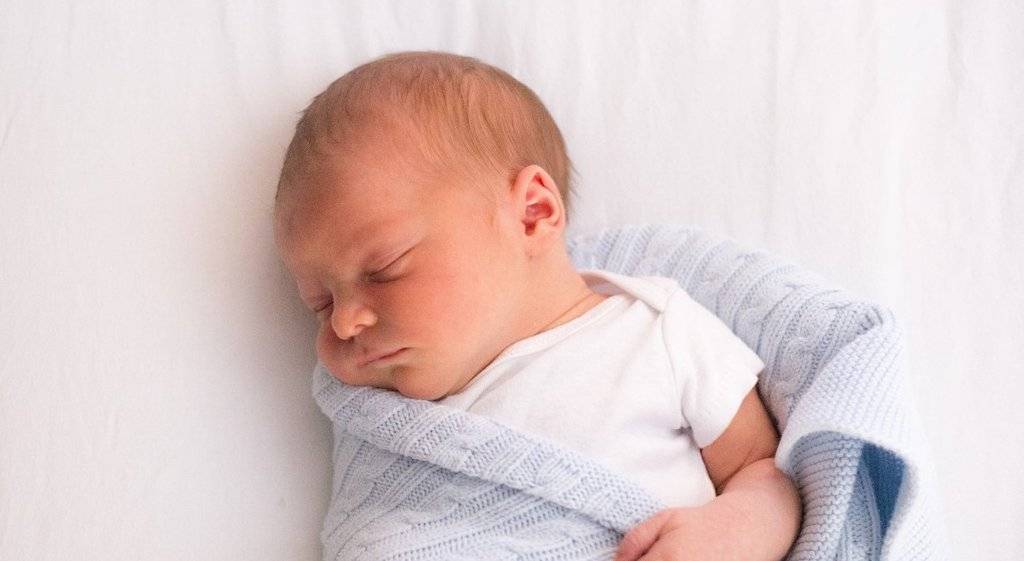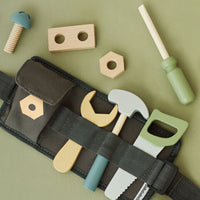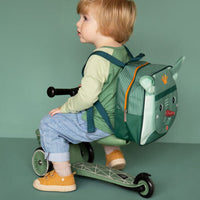Sleep - MORI
How To Keep Your Baby Sleeping When Summer Time Clocks Go Forward

On Sunday 25th the clocks are going forward, and that means your baby's sleeping pattern might change. Sleep consultant Boogie from Sleepy Moon Keeper talks through how to keep your little one sleeping.
Once again we are coming up to the time of year when the clocks are moved forward one hour which means one hour less to sleep. Remember, it’s happening on 25th March in the UK. It is something that parents dread as changing times means changing children’s sleep schedules. However, Spring time change should be easier compared to the Autumn time change especially for the parents of ‘early-risers’.
Here are some tips on how to approach Spring forward:
Option number 1
Prepare in advance.
If you have a very sensitive child who gets super alert whenever there is a change to his schedule, then I’d advise changing their schedule slowly. You may start the preparation either on Thursday (3 days before the time change) or start on Sunday, the day when the clocks change but you will have to remember to go according to the old time. Here is how you do it.
On 1st day of your preparation move the entire child’s schedule 15 minutes earlier. This means, wake her up 15 minutes earlier, move her feeds and mealtimes 15 minutes earlier and put her down for naps and bedtime 15 minutes earlier, e.g. if she normally wakes up at 7am, then wake her up at 6:45am, if her bedtime is at 7pm, then put her down at 6:45pm. Work your way backwards, adjusting the entire schedule every day by 15 min. On the day of time change, or Wednesday if you started adjusting the schedule on the day of time change, she will now be ready to start the day at 7am new time.
Option number 2
You go with the flow but…
On Sunday, when we move clocks, you treat everything as if no change happened but… you will have to wake your child up at his usual wake-up time. This means if he wakes up at 7am, then you set the alarm after moving the time forward one hour for 7am and wake her up. Her body (and yours) will still be in the sleepy mode but if you want to avoid bedtime battles and/or super late bedtime then I’d suggest adjusting everything to the new time right away. Waking up one hour earlier means going to bed one hour earlier as per the old time. It only takes children a few days to adjust to the new time but it is crucial not to give in to the idea of a lie-in.
Can we use time change for changing the baby’s wake-up time?
If you have a child who wakes up at a very early hour, before 6am, then you may try to leave your baby till 7am new time (but don’t go pass that time if it happens) and then go according to the new time with your schedule. However, as much as we’d like it to work, you may find that after a few days your baby will go back to waking up at the usual time before the change.
whatever option you choose, here are some other things to remember when we switch to spring time:
- To help your child resetting her internal clock and adjusting her circadian rhythms make sure that you spend lots of time outside where your child is exposed to the natural light.
- Because the body reacts to light and darkness it’s important that, once bedtime is approaching, you start to dim lights and draw curtains and blinds. It’s going to be harder to ‘cover up’ leaking light as the day is getting longer, so you may consider investing in blackout curtains or just simply make your own by hanging a blanket over the curtain pole. It needs to be very dark, so that the body produces melatonin, the sleep hormone, which will help your child fall asleep easier, stay asleep throughout the night and wake up at a decent hour. Blackout blinds will also help block that morning light which leaks through your child’s bedroom and wakes him up.
- Avoid screen time at least 2 hours before bed as the light coming from devices such as iPads, mobile phones, TVs and computer screens, intervene with melatonin production.
- Turn the white noise on. It’s great for masking any noise that may wake your little one, including birds singing at 4am!
- If you use a toddler’s clock, remember to change the time on there too.
All these ideas on how to deal with time change you can use for your child and for yourself. Don’t forget, your body also needs to adjust to the new time, so take it all into account when preparing for daylight saving time change. Sleep well.
Boguslawa Kucharska-Hodgkins (aka Boogie) is a certified sleep consultant and a founder of Sleepy Moonkeeper. She works with tired parents and their babies to put all sleep issues behind them. She advises parents in both English and Polish language. You can find out more about her services on her website, Facebook or Instagram.
sleep time essentials
Follow us on our social channels!



 100s of gift ideas
100s of gift ideas












